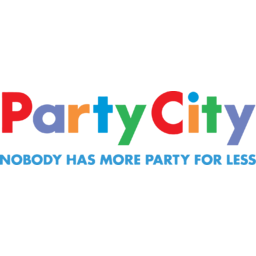
P/E ratio for Party City (PRTY)
P/E ratio as of April 2024 (TTM): -0.1641
According to Party City's latest financial reports and stock price the company's current price-to-earnings ratio (TTM) is -0.164123. At the end of 2021 the company had a P/E ratio of -111.
P/E ratio history for Party City from 2015 to 2022
PE ratio at the end of each year
| Year | P/E ratio | Change |
|---|---|---|
| 2021 | -111 | 10442.24% |
| 2020 | -1.06 | 157.4% |
| 2019 | -0.4105 | -105.31% |
| 2018 | 7.74 | 2.04% |
| 2017 | 7.58 | -47.32% |
| 2016 | 14.4 | -90.36% |
| 2015 | 149 |
P/E ratio for similar companies or competitors
| Company | P/E ratio | P/E ratio differencediff. | Country |
|---|---|---|---|
 Williams-Sonoma WSM | 19.1 | -11,733.71% | 🇺🇸 USA |
 Sportsman's Warehouse SPWH | 25.5 | -15,637.13% | 🇺🇸 USA |
 Restoration Hardware
RH | 17.2 | -10,551.37% | 🇺🇸 USA |
 Boot Barn Holdings
BOOT | 17.8 | -10,945.28% | 🇺🇸 USA |
How to read a P/E ratio?
The Price/Earnings ratio measures the relationship between a company's stock price and its earnings per share. A low but positive P/E ratio stands for a company that is generating high earnings compared to its current valuation and might be undervalued. A company with a high negative (near 0) P/E ratio stands for a company that is generating heavy losses compared to its current valuation.
Companies with a P/E ratio over 30 or a negative one are generaly seen as "growth stocks" meaning that investors typically expect the company to grow or to become profitable in the future.
Companies with a positive P/E ratio bellow 10 are generally seen as "value stocks" meaning that the company is already very profitable and unlikely to strong growth in the future.